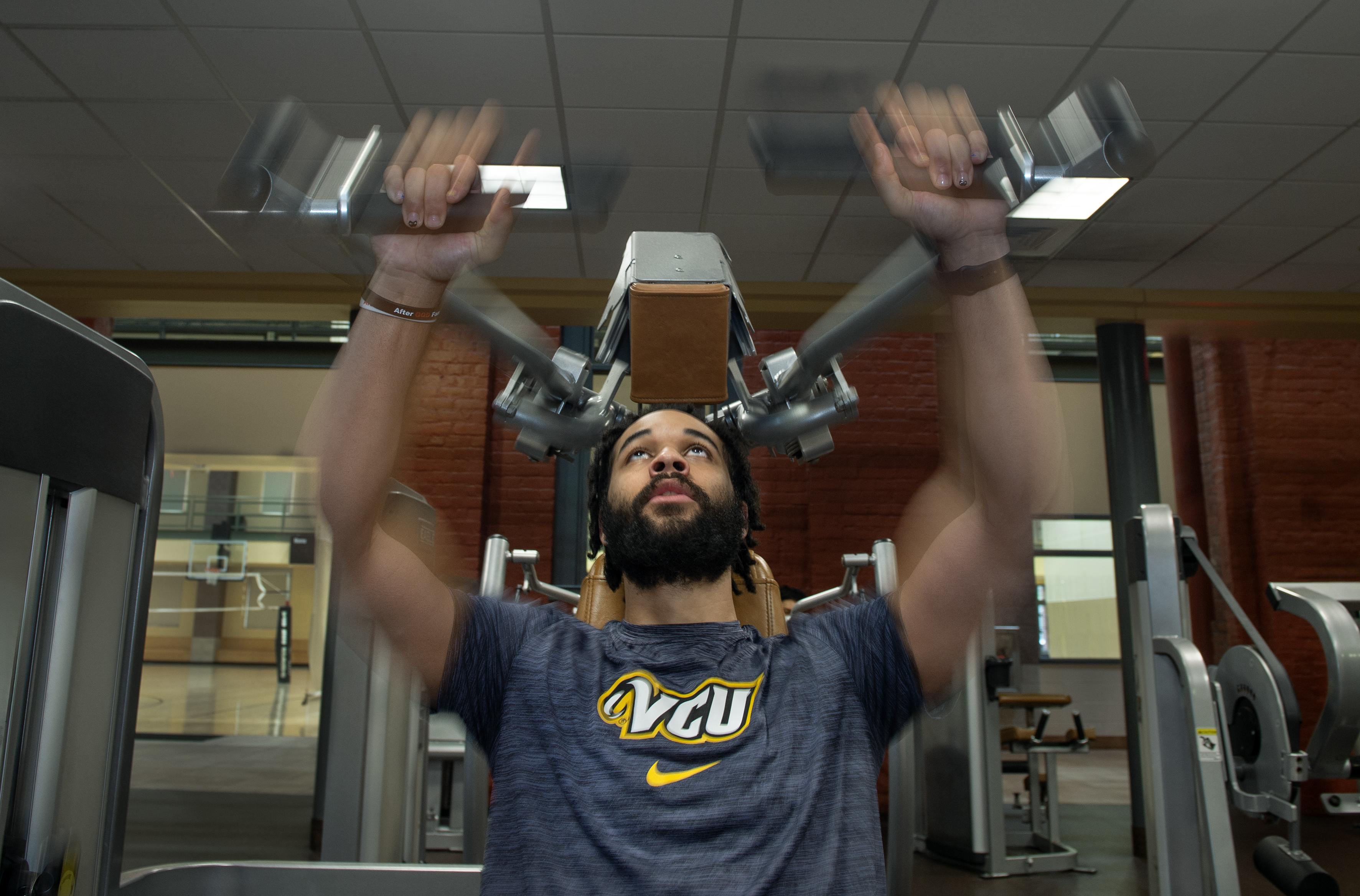Class of 2024: Steeled by the challenges of family and football, George Richardson changed his game plan
 By William Lineberry
By William Lineberry
University College & Honors College
Amid the turmoil of his youth – the death of his parents, separation from his siblings – George Richardson had the steady comfort of sports. But the “identity crisis” he faced as a college athlete led to a reckoning – and led him to Virginia Commonwealth University, where his upcoming degree will help him pay forward the life lessons he has learned.
Richardson will graduate in May from VCU’s University College with an interdisciplinary studies degree with a concentration in educating youth in fitness and athletics. He will be the first in his family to earn a college degree, and his family journey was marked by significant challenges.
Early in his childhood, Richardson’s mother passed away. Later, his father was incarcerated and then also died. Richardson and his three brothers and three sisters were separated and put into foster care. Eventually, he was adopted by a family in Sterling in Loudoun County.
The one constant for Richardson was sports, specifically basketball and football: They allowed him to focus and build goals. He started playing at age 5 and joined the football team at Campbell University in North Carolina. It was there that Richardson acknowledged to himself that his aspiration of becoming a professional football player would not be realized.
“It was an identity crisis, honestly,” Richardson said of the realization. “But in a lot of ways, it was a good thing. I know I made the right decision. To finally say ‘I have to put it down’ was hard, but it helped lead me to where I am now.”
Even leaving football behind, Richardson still wanted to be around sports – and to use them as an avenue for growth and success for youths, much as they had been for him. He transferred as a nonathlete to VCU, where advisors Richard Quarshie and Christina Davis helped him create the concentration for his IDS degree. It spans multiple disciplines and focuses on how sports and physical fitness education can propel students.
“It allowed me to do what I wanted to do after football, which is teaching,” Richardson said. “Through this degree, I found a way to still be around sports and make a change and an impact.”
For his capstone research project, Richardson is examining the experience of young Black athletes and identity foreclosure, a phenomenon where individuals have a preconceived idea of who they are that has been created by others in their lives (coaches, teachers, etc.) without having done their own exploration of themselves to find their true identity.
“I know other youth have been through what I’ve been through,” Richardson said. “This capstone has helped me realize that we are more than sports. This whole capstone and degree has been eye-opening and has really affirmed what I want to do in my life, which is to help others and give back.”
After graduating, Richardson hopes to work as an educator in a school system, serving as a mentor, coach and role model who helps young student-athletes embrace their true selves.
“I just want to be there for the kids to give them what I didn’t have,” Richardson said. “I want to be a consistent person – someone they know they can count on.”